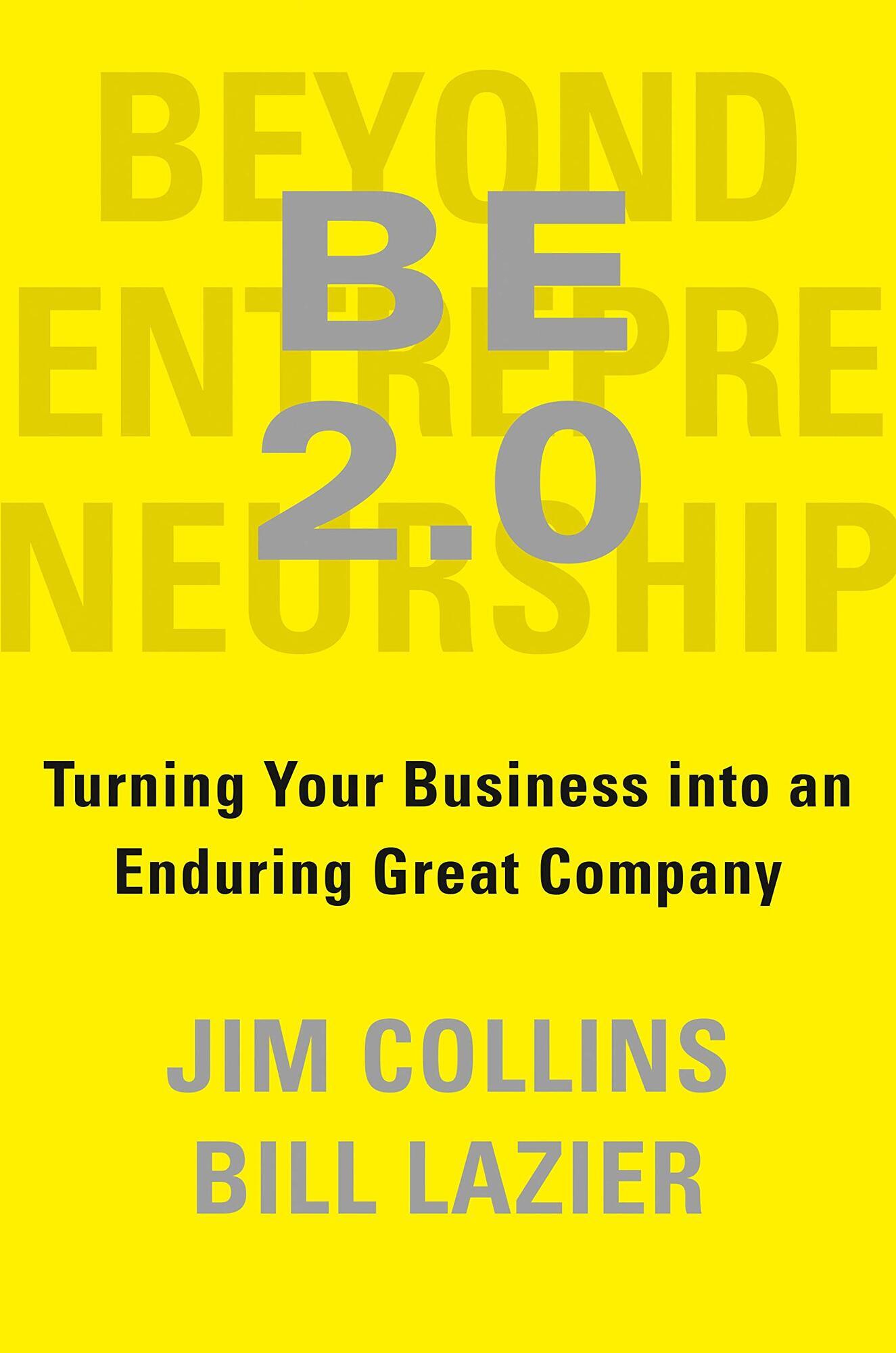 This is the third of a series of five blog posts based on Jim Collins & Bill Lazier, BE 2.0: Turning Your Business into an Enduring Great Company (New York, NY: Portfolio / Penguin, 2020). Bill Lazier and Jim Collins co-authored Beyond Entrepreneurship in 1992. Collins has released an expanded second version under a slightly modified name.
This is the third of a series of five blog posts based on Jim Collins & Bill Lazier, BE 2.0: Turning Your Business into an Enduring Great Company (New York, NY: Portfolio / Penguin, 2020). Bill Lazier and Jim Collins co-authored Beyond Entrepreneurship in 1992. Collins has released an expanded second version under a slightly modified name.
Collins muses about the psychological make-up of people. Although not trained as a psychologist, like Schumaker or Peterson referred to previsouly, he proceeds to explain that there are two sides to people.
“There is a spiritual side to all of us. For some, it’s hidden below case-hardened cynicism, whereas for others it is near the surface. But in all cases it’s there to be tapped. By spiritual we do not necessarily mean religious. We are speaking of the higher side of people; the side that brings a lump to our throat when the underdog prevails; the side that wants to see the good guys win; the side that wants the world to be a better place for our children; the side that compels us to return the extra change when a clerk has given us too much; the side that hopes we would not let our comrades down in battle; the side that causes us to feel outrage at cheating and unfairness; the side that pushes us late into the night to complete an arduous task simply because we gave our word; the side that jumps instantly into an icy river to save a drowning victim; the side that makes us heroes.” [88-89]
He offers the perfunctory warning that he is not getting religious on us, lest people stop reading and run for cover. His explanation goes from business guru to amateur pop psychologist in a nanosecond. He speaks of the “higher side” of people. I quoted the entire paragraph above as an example of how it is best to stick to your knitting.
Collins now explains the other side. Our evil twin Skippy lurks in the shadows. He notes: “Granted, this is only one side of us. There is another side—the side that Joseph Conrad wrote about in Heart of Darkness. It’s the side that breaks commitments, lets our comrades down, keeps the extra change, seeks to crush those less fortunate, pursues expedience over excellence, turns a blind eye to our own inconsistencies and weaknesses. All of us have both sides. A leader, however, appeals to the lighter side, stimulating people to take the high road. A leader speaks to the finer qualities we all possess and changes people to express these qualities. Ultimately, a leader changes people.” [89] I can hear Monty Python’s troupe singing, “always look on the bright side of life.”
Collins further provides a handy summary of the dialectic between meaning and work from a management theory perspective: “Most people want to do more than bring home a paycheck. They want work they can believe in and that has meaning. This may not be true of all people, but it’s certainly true of the people most likely to be solid contributors to a great company. Tap into the basic human desire for meaningful work and the traditional management problem of “how to motivate employees” largely evaporates. People will be self-motivated when doing work they believe in.” [96] Of course, this basic formula has numerous shortcomings, but the net outcome is that work is religion. It is the opiate of the masses: “To make a personal analogy, purpose plays the role that a sense of life purpose can provide an individual. A person with a purpose will never be at a loss for meaningful work.” [109]
Collins summarizes the purpose of life tied into work: “A clear and compelling vision is essential to people seeing the importance of their work.” [278] Further, “Along the way, perhaps as more of a by-product than a goal, they [those committed to building a great company] just might find the daily happiness that comes from doing meaningful work with people they truly like and deeply respect. And it’s hard to have a better life than that.” [170] In short, in a sidebar musing in a book on entrepreneurship Collins has sorted out the meaning of life.
Collins’ closing words in the book harken back to the meaning of life: “You too can build a company that you can look back on at the end of your life, and say, “I’m proud of what I’m leaving behind, and I respect myself for the way I’ve gone about doing it. My life has been well spent.” [302] It sounds a bit like, “well done, good and faithful servant.” Where did that come from?

